Project Jukebox Survey
Help us redesign the Project Jukebox website by taking a very short survey!
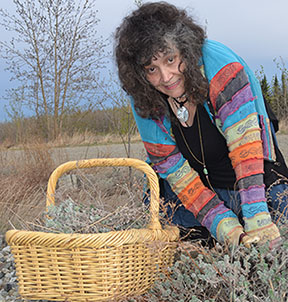 The Ethnobotany, Ethnomedicine and Traditional Healing Project Jukebox highlights Alaska Native Elders talking about their traditional uses and connections with plants. It includes archived recordings from the Oral History Collection at Elmer E. Rasmuson Library at the University of Alaska Fairbanks and oral history interviews conducted in 2021 and 2022 by a team from the University of Alaska Fairbanks' Ethnobotany Program (EBOT).
The Ethnobotany, Ethnomedicine and Traditional Healing Project Jukebox highlights Alaska Native Elders talking about their traditional uses and connections with plants. It includes archived recordings from the Oral History Collection at Elmer E. Rasmuson Library at the University of Alaska Fairbanks and oral history interviews conducted in 2021 and 2022 by a team from the University of Alaska Fairbanks' Ethnobotany Program (EBOT).
Ethnobotany is the study of the relationships between people and plants. The traditional use of plants for healing and food goes back thousands of years in Alaska's Native cultures, but ethnobotany as an academic discipline is relatively new. It combines concepts from the humanities and the sciences, mainly anthropology and botany, to explore traditional Native practices and connections to plants, Native language terminology, and plant science.
This Jukebox project was completed in 2022 and was a collaboration between UAF EBOT Program staff (project development and management by Lisa Strecker, EBOT Assistant Professor; interviewing by Jennifer Andrulli, EBOT Cultural Advisor; transcribing and interviewing by Stefani Burich; and assistance from Aihs Palmer, EBOT Program Assistant) and the staff of the UAF Oral History Program (project planning by Leslie McCartney, Curator of Oral History; Jukebox development by Karen Brewster, Research Associate; and oral history collection assistance from Robyn Russell, Collections Manager). This work is supported by the University of Alaska Fairbanks' Ethnobotany Program Kuskokwim Campus with funding from the Alaska Native-Serving and Native Hawaiian-Serving Education Competitive Grants Program (ANNH) from the USDA National Institute of Food and Agriculture (grant number 2020-38426-32342/project accession number 1023459). The information in this project reflects the context of the original creation date. Some information may now be out of date.
The material can be searched by the name of the person interviewed or where they are from, different themes such as ethnobotany, traditional knowledge, plant use, and healing, or by the name of a specific plant whose traditional uses you would like more information about. See Specific Plants Discussed in Oral History Interviews for excerpts from additional recordings where specific plants and their uses are mentioned.
People
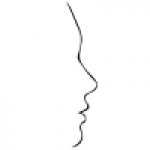 |
1981 North Slope Elders Conference, Medicinal Plant Session |
1981 North Slope Elders Conference, Medicinal Plant Session, August 12, 1981, Barrow (now Utqiaġvik), Alaska. Various elders from communities around the North Slope talk about medicinal uses of plants and traditional healing practices. The session goes over two recordings (87-32-15_PT.5_Side A & B). The session was facilitated by Donna Neakok Miller. The recordings are of the English translator speaking with the Iñupiaq speakers faint in the background. |
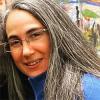 |
Jennifer "Jen" Andrulli |
Jennifer (Jen) Andrulli is Yup’ik and Siberian Yup'ik of Qaluyaaq (Nelson Island, Alaska) a member of Too Naaleł Denh Nation (Manley Hot Springs Tribe) of the Bidziyhta Hut’aana (Caribou Clan). Jen grew up in Manley Hot Springs and Fairbanks, Alaska. Her father was the Community Health Aide in Manley Hot Springs, and her mother, Karen Brooks, was the alternate Health Aide. Following in her mother's and grandfather's footsteps as traditional healers and medicine people, Jen was taught... Read More |
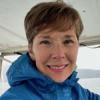 |
Kim Aspelund |
Kim Aspelund is Tlingit and Alutiiq originally from Cordova, Alaska. Her family name is Webber. Her dad was Tlingit from Katella, and her mom was Alutiiq from Ellamar (a village near Valdez, Alaska). She also has Eyak blood through her family history. She was born and raised in Cordova and grew up commercial fishing on her family's boat. Kim worked at Southcentral Foundation in Anchorage, Alaska and in the Palmer-Wasilla area for thirteen years, where she focused on traditional healing and... Read More |
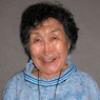 |
Rita Blumenstein |
Born in 1936, Rita Pitka Blumenstein was Yup'ik and grew up in the village of Tununak on Nelson Island, Alaska. She became a traditional healer and spiritual leader. Rita’s early education came from studying with her mother, aunts, and village elders, which allowed her to intimately understand the traditional ways and beliefs of her culture. Her grandmother and mother recognized Rita's gift for healing and she began healing at the age of four. Rita went on to work at hospitals in Bethel and... Read More |
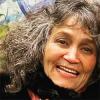 |
Karen Brooks |
Karen Brooks is Yup’ik and Siberian Yup'ik of Qaluyaaq (Nelson Island, Alaska) a member of Too Naaleł Denh Nation (Manley Hot Springs Tribe) of the Bidziyhta Hut’aana (Caribou Clan). Her parents were Rose and Al Hagen from Manley Hot Springs, Alaska, and her grandparents were Helen and Fred Miller from Takotna, Alaska. Karen has been a health and wellness practitioner for over 45 years, bridging traditional health-based practices with modern complementary and alternative medicine approaches... Read More |
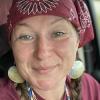 |
Eva Dawn Burk |
Eva Dawn Burk is Dene Athabascan from Nenana and Manley Hot Springs, Alaska. She grew up living off the land at fish camp and along a trap line, and is committed to teaching the next generation about these practices and lifestyle. She is deeply involved with issues of food security and sovereignty of tribal lands in Nenana, and works with the non-profit Tlaa Deneldel, which is focused on working with Indigenous people interested in agriculture around the state. Eva is working on a master’s... Read More |
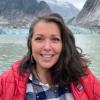 |
Meda DeWitt |
Meda DeWitt is Tlingit with familial ties to Wrangell, Alaska. Meda’s Tlingit names are Tśa Tsée Náakw and Khaat kła.at, her adopted Iñupiaq name is Tigigalook, and her adopted Cree name is Boss Eagle Spirit Woman “Boss.” Her clan is Naanyaa.aayí and she is a child of the Kaach.aadi. Her family comes from Shtuxéen kwaan (now referred to as Wrangell, AK.) Meda’s lineage also comes from Oregon, Washington, and the British Columbia/Yukon Territories. Currently she lives on Dena’ina lands in... Read More |
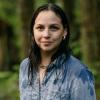 |
Mary Goddard |
Mary Goddard is Tlingit from Southeast Alaska. She is of the Eagle moiety, Kaagwaantaan clan, and is from the Brown Bear house. She currently lives in Sitka, Alaska. Mary is traditional plant harvester and user of medicinal plants. She also is a jewelry maker and film artist who creates contemporary jewelry based on traditional Tlingit formline design using a variety of materials including copper, silver, spruce roots, quill, baleen, and grass. Mary forages for indigenous plants, and... Read More |
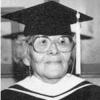 |
Della Keats |
Della Keats was an Iñupiaq born in 1907 in Usualak, a settlement on the Noatak River near the current village of Noatak, Alaska. She was trained at an early age in midwifery, and developing an interest in anatomy and traditional medicine. She taught herself what she needed to know using a Western physiology book and combined that with knowledge she received from Iñupiaq elders. Her methods included a combination of physical manipulations and plant-based natural remedies from the land. In her... Read More |
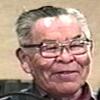 |
Howard Luke |
Howard Luke is an Athabascan Elder who was born at Linder Lake, near Nenana, Alaska, in 1923. His mother would teach him at night with stories and how to take care of your luck, "gallee'ya." He moved with his mother and rest of the family to Fairbanks in 1936. Howard began dog training and racing in the 1940s. His first Open North American Sled Dog Race was in Fairbanks in 1947; he came in second place. Howard also raced boats, winning the 1965 Yukon 800 Boat Race, which runs on the Tanana... Read More |
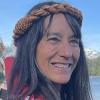 |
Naomi Kaasei Michalsen |
Naomi "Kaasei" "Daaw Da Oo" Michalsen is Tlingit from Southeast Alaska. Kassei was her grandmother's name and means "higher voice." Her great-grandmother's name was Daaw Da Oo. Naomi is Áak'w Kwáan (people of Auke Bay). She is of the Eagle/Wolf Moiety. and the Wooshkeetaan clan. She comes from the Shark House, and her ancestral home is Berners Bay (Daxanáak). Her father's people are T'akdeintaan from Hoonah, and as well as European descent. She also has some Japanese and Filipino heritage.... Read More |



